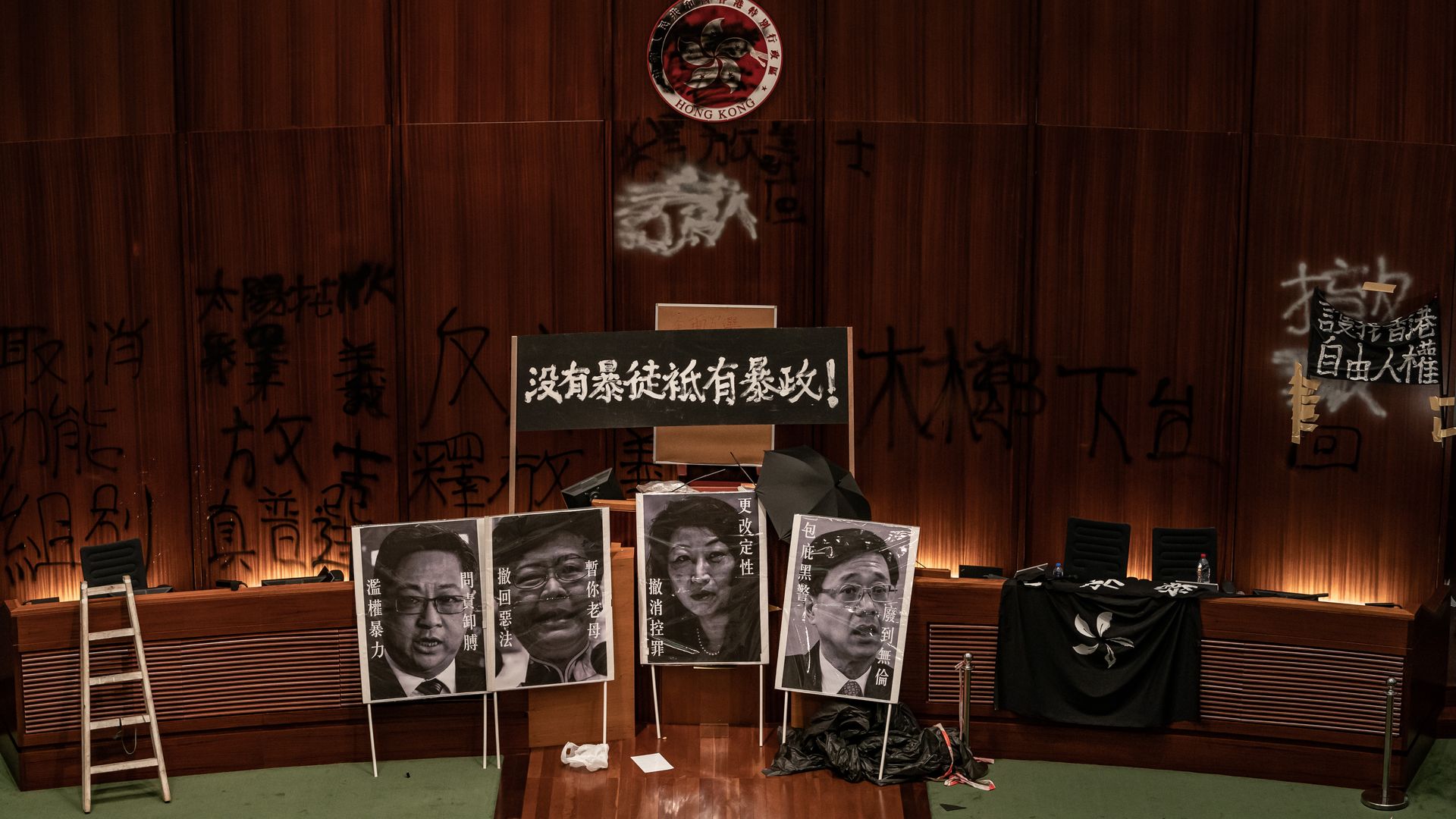Jul 2, 2019 - World
Investors worry Hong Kong protests could hurt business
Add Axios as your preferred source to
see more of our stories on Google.

Main chamber at the Legislative Council building after it was damaged by demonstrators during a protest. Photo: Anthony Kwan/Getty Images
